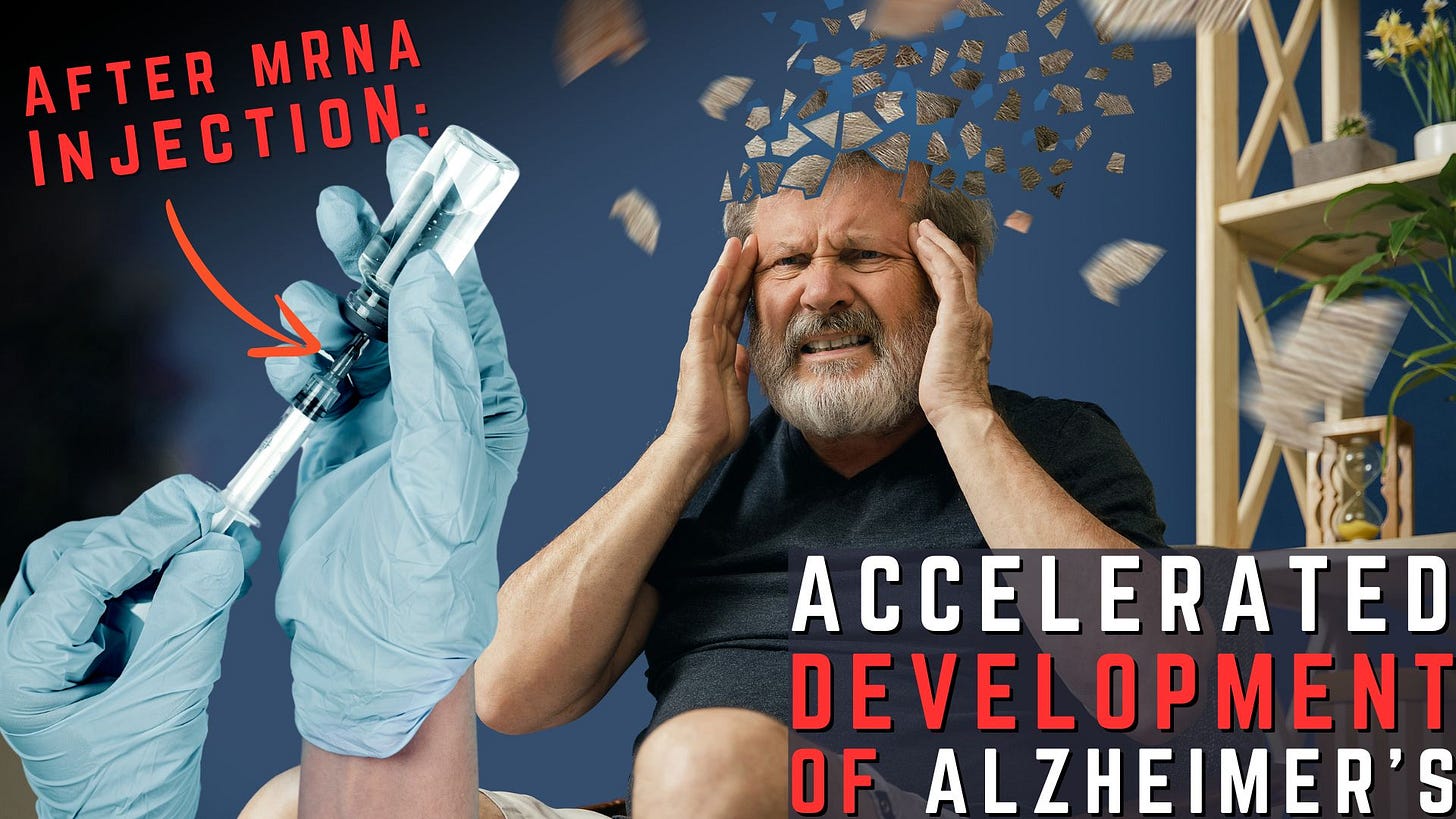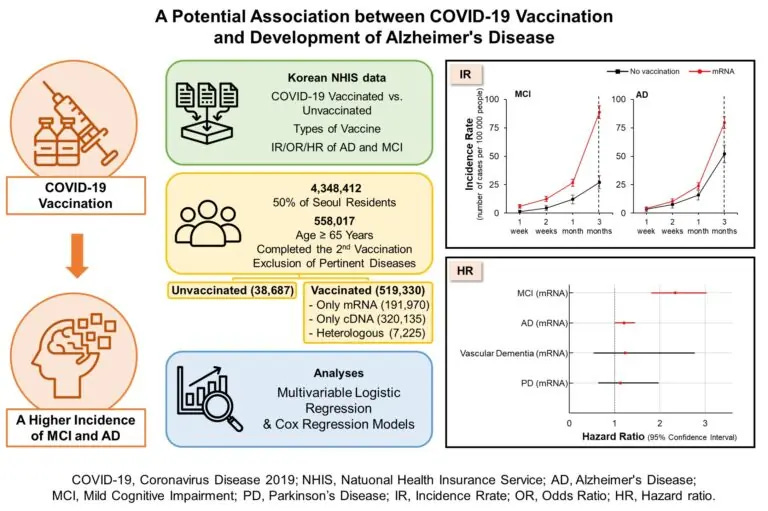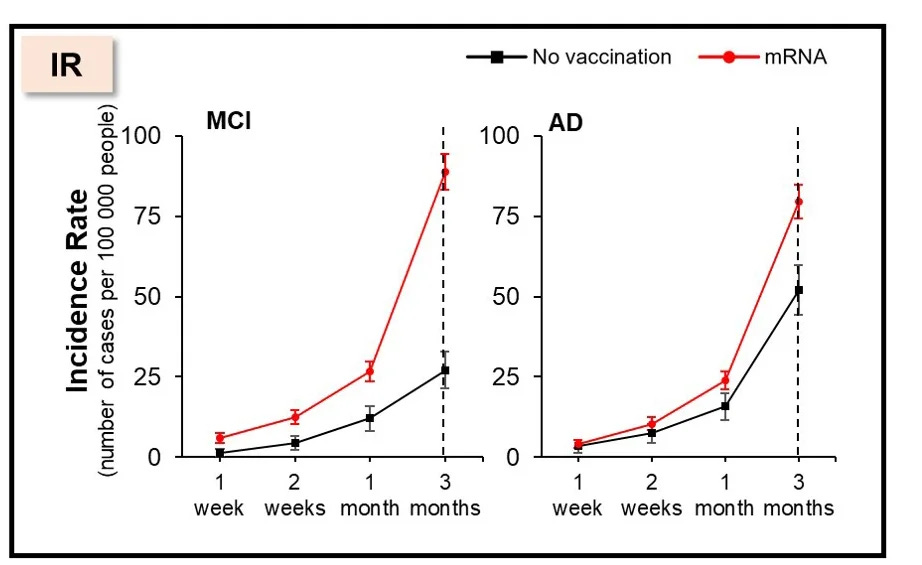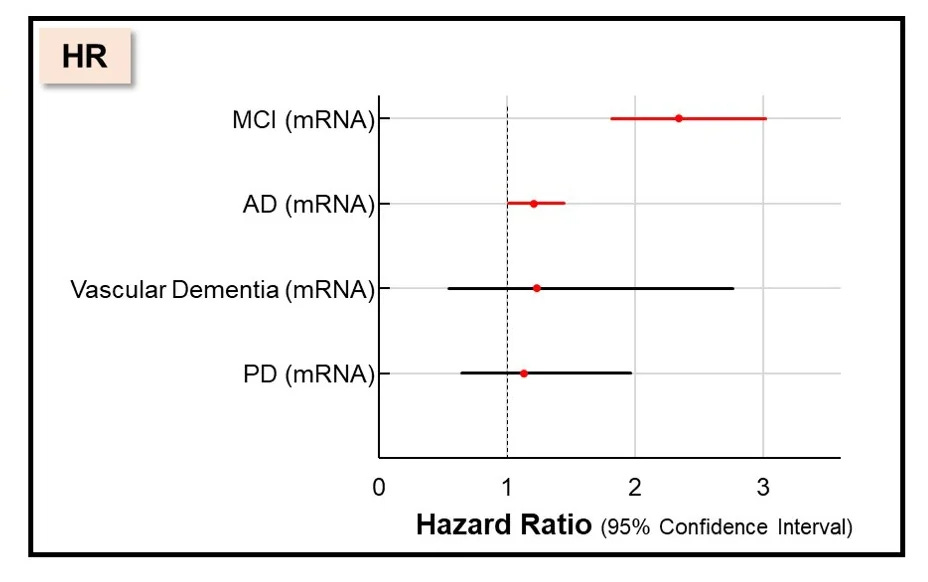A study from Korea published in May 2024 confirms my worst fears: mRNA injections dramatically accelerate the development of Alzheimer's disease. The investigation involving over 558,000 elderly residents of Seoul reveals a significant increase in mild cognitive impairment (MCI) and Alzheimer's diagnoses following the second mRNA injection. These findings bolster my theory, articulated in 2016, that neuroinflammatory processes play a crucial role in the onset of Alzheimer's. It is imperative to acknowledge the devastating effects of these genetic interventions, while also recognizing the vital importance of lithium in stabilizing cognitive health.
Dear reader,
This article was available exclusively to my paid subscribers for two weeks before being released to all readers, as is customary on my substack. The information is too important to limit, but as a gesture of thanks, I am giving my paid subscribers early access.
Michael Nehls
In 2016, the Journal of Molecular Psychiatry published my scientific article titled “Unified Theory of Alzheimer's Disease” (UTAD).
In this widely referenced article, I first identify the root cause of Alzheimer's dementia: it arises from the inhibition or lack of stimulation of the natural production of new nerve cells (adult hippocampal neurogenesis, AHN) in the autobiographical memory center known as the hippocampus, which is influenced by unfavorable lifestyle factors.
Causes and Effects of Impaired Adult Hippocampal Neurogenesis
If the AHN (adult hippocampal neurogenesis) is blocked, a multitude of subsequent issues arise, all of which accelerate the progression of Alzheimer's disease. One of the primary causes of this brain-damaging inhibition of AHN is chronic neuroinflammation, which refers to ongoing inflammation in the brain. This, in turn, is triggered by long-term poor nutrition, such as elevated blood sugar, consumption of unhealthy fatty acids, chronic stress resulting from psychological trauma, or fear-driven narratives. Additionally, chronic infections directly contribute to this condition.
As I illustrate in my book The Indoctrinated Brain, the spike protein of SARS-CoV-2—more precisely, its S1 subunit—repurposed as a bioweapon, efficiently crosses into the brain and simulates a coronavirus infection there. This makes it an extremely potent activator of neuroinflammation and an accelerator of the Alzheimer's disease process.
The measures, which were purely motivated by power politics (see the German RKI Files), ostensibly aimed at curbing the spread of infection, are now producing severe and increasingly measurable consequences. For instance, in 2021, there was a 31% increase in the incidence of new Alzheimer's cases among Germans aged 65 and older, compared to 2018. This is a clear indication of an acceleration in the progression of Alzheimer's disease in Germany (German Dementia Statistics 2018 & German Dementia Statistics 2021).
Acceleration in this context means that not only are more people developing Alzheimer's, but they are also doing so more quickly and at younger ages. In the under-65 age group, only about 1 to 2 percent typically develop dementia, as this disease requires time to manifest due to the brain’s compensatory mechanisms. In most cases, obvious symptoms of the prolonged, underlying process that leads to Alzheimer's appear much later. Based on the 436,800 new dementia cases in the over-65 age group in 2021, one would have expected around 4,360 to 8,720 new cases in younger individuals. However, the drastic acceleration of the disease process as a result of these measures led to a staggering 100,800 new cases among people, many of whom were well under 65 years old.
The extent to which neuroinflammation caused by the spike protein alone accounts for this sharp increase remains difficult to gauge. As I demonstrated in The Indoctrinated Brain, all of the various COVID-19 measures implemented in 2020 and 2021 contributed to the accelerated development of Alzheimer's. These include the government's targeted and utterly unjustified fear campaign, which itself triggers neuroinflammation (see the unredacted German RKI Files), as well as the isolation of individuals, existential anxieties, and other factors.
New Evidence from South Korea: Grim Predictions Confirmed
However, a study from South Korea, published on May 28, 2024, now provides clear evidence that mRNA injections alone significantly accelerate the progression of Alzheimer's disease. (Link)
In this study, 558,017 residents of Seoul aged 65 and older were divided into two groups: those who received no mRNA injections and those who received two mRNA injections.
Just a few weeks after the second mRNA injection, there was a statistically significant increase in a precursor to Alzheimer's, known as "mild cognitive impairment" (MCI) (see the left-hand figure from the referenced Korean study). This alarming rise in MCI cases within such a short period following the genetic intervention reinforces my dire warnings about the serious consequences of unnatural "spiking."
Surprisingly, a significant increase in MCI was already evident just weeks after the second genetic injection. The rise in Alzheimer's disease (AD) followed a similar sharp trajectory, as shown on the right side of the graph, though with a slight, albeit very brief, delay relative to the genetic injection.
The fact that such a pronounced progression towards Alzheimer's could be observed despite the brief observation period of just three months highlights the immense impact with which the autobiographical memory center is damaged by the genetic intervention.
In the control groups, which consisted of patients with vascular dementia (arteriosclerosis) or Parkinson's disease, no significant changes were detected. However, an adverse trend was also noticeable, as illustrated in the following diagram from the same study:
The red dot represents the mean value of the so-called "hazard ratio," i.e., the statistical relative risk of unfavorable outcomes in the cases shown—namely, developing MCI, AD, vascular dementia, or Parkinson’s disease following mRNA injection. As seen, the risk for the latter diseases is also elevated after three months (dot shifted to the right), although not yet statistically significant.
Since both of these diseases are, among other factors, rooted in an inflammatory component, it can be assumed that with a longer observation period, significant fluctuations would also become measurable here.
Lithium – The Key Element in Combating Neuroinflammation
In my first article on essential lithium, I demonstrated that this vital micronutrient is capable of mitigating neuroinflammatory processes. These processes also manifest as brain fog following natural infection, commonly referred to as Long COVID, or— as in this case— after mRNA injection, known as Post-VAC.
Lithium is also the only substance to date that has been shown to stabilize cognitive function in individuals suffering from MCI, thereby halting the clinical progression towards Alzheimer's disease. Remarkably, this effect occurs even with the administration of a very low dose of just 0.3 milligrams per day, as shown in the following figure (link):
To explain: The vertical axis shows values from 0 to 30, as measured by the "Mini Mental State Examination" (MMSE), a standard test used to diagnose Alzheimer's disease and assess cognitive function. A score of 28-30 is considered healthy. A score of 10 corresponds to the final stage of Alzheimer's disease. At a score of 0, the patient no longer responds to questions.
A score of around 20 corresponds to the early stage of Alzheimer's, known as MCI, which was mentioned earlier. While the cognitive function of the control group that did not receive lithium continued to deteriorate towards Alzheimer's (as shown in the figure), the group treated with the low dose of lithium remained stable throughout the observation period of five trimesters, or 15 months.
Given that lithium is essential, it is likely that this striking clinical effect resulted from correcting a deficiency; otherwise, the magnitude of the effect is difficult to explain.
This microdose of 0.3 milligrams of lithium is, in fact, only about one-third of the 1 milligram daily dose that I and other scientists consider to be essential (link).
The data suggests that if everyone were to consume this essential amount of lithium daily, the likelihood of developing neuroinflammatory diseases such as Alzheimer's would be significantly reduced.
Attack Vectors of Mass Indoctrination on an Unprecedented Scale
Unfortunately, influential organizations like the World Health Organization (WHO) do not promote knowledge about the essentiality of lithium in health matters; in fact, the opposite is true.
In line with my thesis in The Indoctrinated Brain, their actions and omissions contribute, among other factors, to a double assault on the mental immune system, with AHN and the hippocampus as primary targets. This double assault consists of:
a) the promotion of global "spiking" (referring to the introduction of the spike protein into the body) through neurotoxic mRNA injections (the rise in Alzheimer's cases is collateral damage of the indoctrination process), and
b) the failure to recognize lithium as an essential trace element, despite the overwhelming evidence of its vital effects. As a result, lithium supplementation is prohibited in most countries worldwide, including all of Europe.
Both of these attack vectors must become widely known, and lithium must be made widely available – this is the cause to which I am fully dedicated.










Dr. Nehl, thank you for your work. If someone didn’t take the vax and had a pretty hard case of COVID-19, would the effect on the hippocampus be similar to the effects of taking the vax?